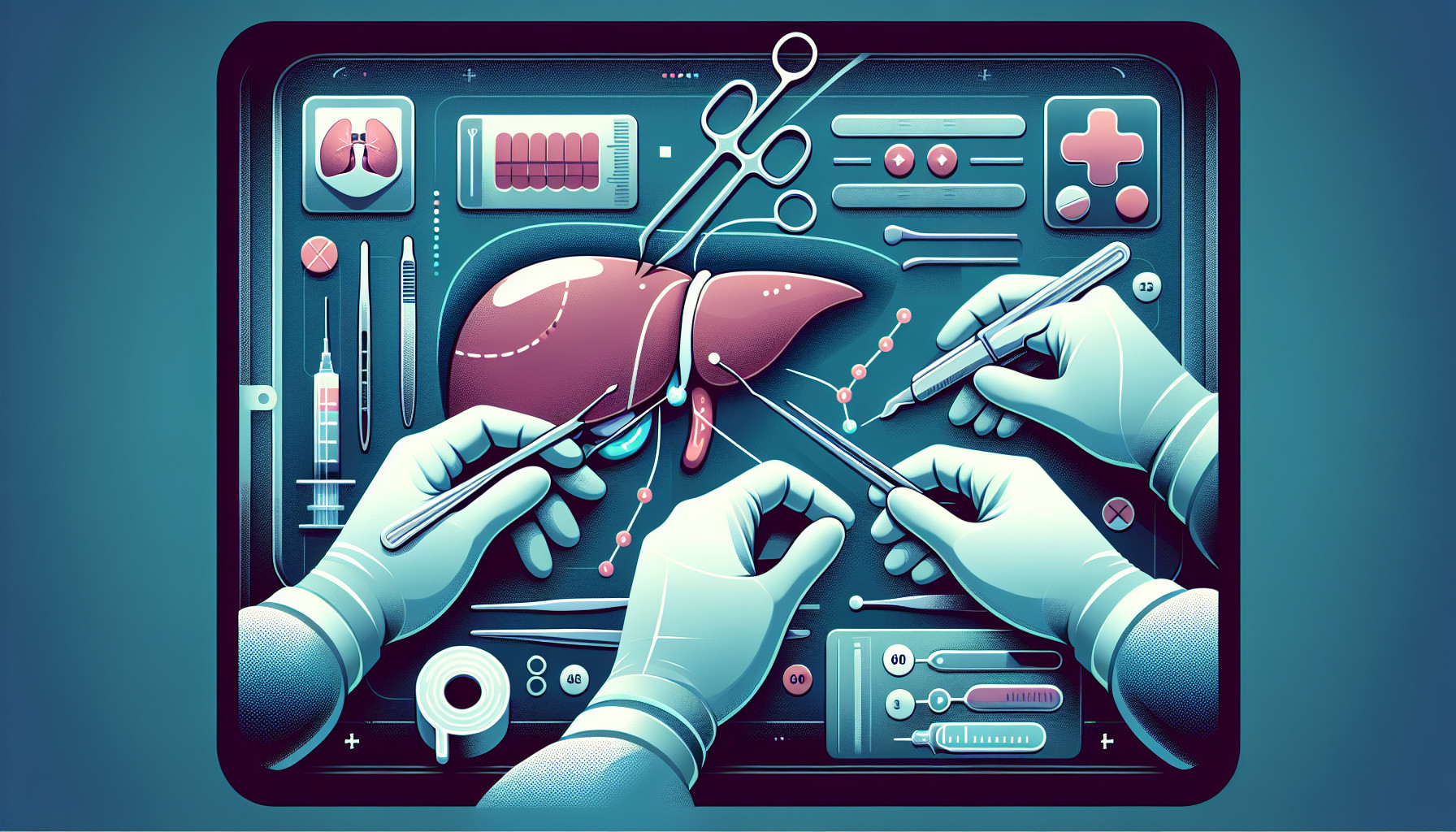Our Summary
This research paper discusses how the staging of liver fibrosis, a condition where the liver becomes excessively scarred, is increasingly being done using noninvasive methods. These methods remove the need for a liver biopsy, a procedure where a small piece of the liver is removed for testing. Scientists have developed and tested scores based on lab results and patient information to evaluate fibrosis in patients with hepatitis C virus (HCV) infection and nonalcoholic fatty liver disease (NAFLD). They have also developed several imaging methods that measure the speed of shear-waves, which can reflect the severity of fibrosis.
FAQs
- What noninvasive methods are used for staging liver fibrosis?
- How are scores developed and validated for assessing fibrosis in patients with HCV infection and NAFLD?
- What does shear-wave velocity imaging measure in relation to liver fibrosis?
Doctor’s Tip
One helpful tip a doctor might tell a patient about liver biopsy is that it is a commonly used procedure to diagnose liver conditions and assess the extent of liver damage. It is important for the patient to follow any preparation instructions provided by their healthcare provider, such as fasting before the procedure. Additionally, the patient should inform their doctor about any medications they are taking, as some may need to be temporarily stopped before the biopsy. After the procedure, the patient may experience some mild discomfort or soreness at the biopsy site, which can be managed with over-the-counter pain medication. It is important for the patient to follow their doctor’s post-procedure instructions carefully and to contact them if they experience any unexpected or concerning symptoms.
Suitable For
However, liver biopsy remains the gold standard for assessing the extent of liver fibrosis and inflammation in certain patient populations. Patients who are typically recommended for liver biopsy include those with suspected or confirmed liver diseases such as chronic hepatitis B virus (HBV) infection, autoimmune hepatitis, primary biliary cholangitis, primary sclerosing cholangitis, and hemochromatosis.
Liver biopsy may also be recommended for patients with unexplained liver enzyme abnormalities, suspected liver tumors, or to monitor disease progression or response to treatment. Additionally, liver biopsy may be indicated in patients who have discordant noninvasive test results or when there is a need for precise histological diagnosis.
Overall, liver biopsy is recommended in patients where the information obtained from the procedure is expected to significantly impact clinical management or decision-making. It is important for healthcare providers to carefully consider the risks and benefits of liver biopsy in each individual patient and to discuss these with the patient before proceeding with the procedure.
Timeline
Before liver biopsy:
- Patient will typically have a consultation with their healthcare provider to discuss the reasons for needing a liver biopsy.
- Patient may undergo blood tests, imaging studies, and possibly a physical exam to assess their liver health and determine if a biopsy is necessary.
- Patient may be instructed to avoid certain medications, food, or drink before the procedure.
- Patient will be informed about the risks and benefits of the procedure and may need to sign a consent form.
After liver biopsy:
- Patient will be monitored for a period of time after the biopsy to check for any complications such as bleeding or infection.
- Patient may experience some pain or discomfort at the biopsy site, which can typically be managed with over-the-counter pain medication.
- Patient may be advised to avoid strenuous activities for a period of time to allow the liver to heal.
- Results of the biopsy will be sent to the healthcare provider, who will discuss them with the patient and determine the next steps in managing their liver health.
What to Ask Your Doctor
Some questions a patient should ask their doctor about liver biopsy include:
- Why is a liver biopsy necessary in my case?
- What information will the liver biopsy provide that other tests cannot?
- What are the risks associated with undergoing a liver biopsy?
- How should I prepare for the liver biopsy procedure?
- Will I need to make any changes to my medication or diet before the biopsy?
- How long will it take to get the results of the liver biopsy?
- What will the recovery process be like after the biopsy?
- Are there any potential complications or side effects I should be aware of?
- How will the results of the liver biopsy impact my treatment plan?
- Are there any alternative tests or methods for assessing liver fibrosis that could be considered instead of a biopsy?
Reference
Authors: Singh T, Allende DS, McCullough AJ. Journal: Cleve Clin J Med. 2019 Mar;86(3):179-186. doi: 10.3949/ccjm.86a.17118. PMID: 30849036
